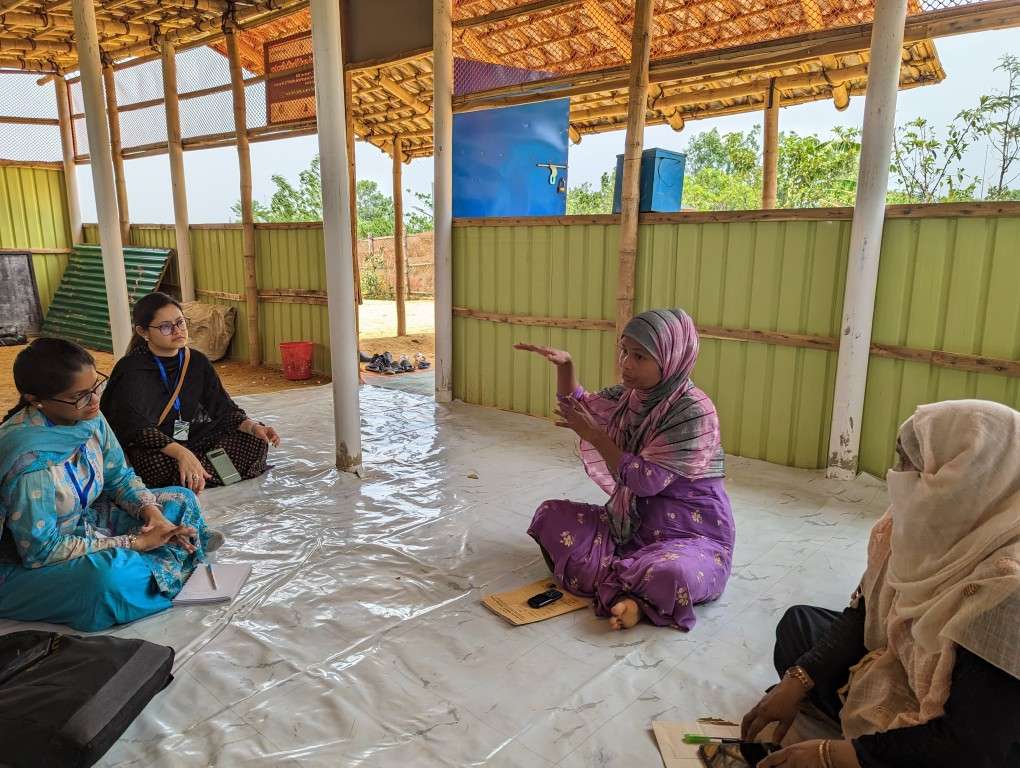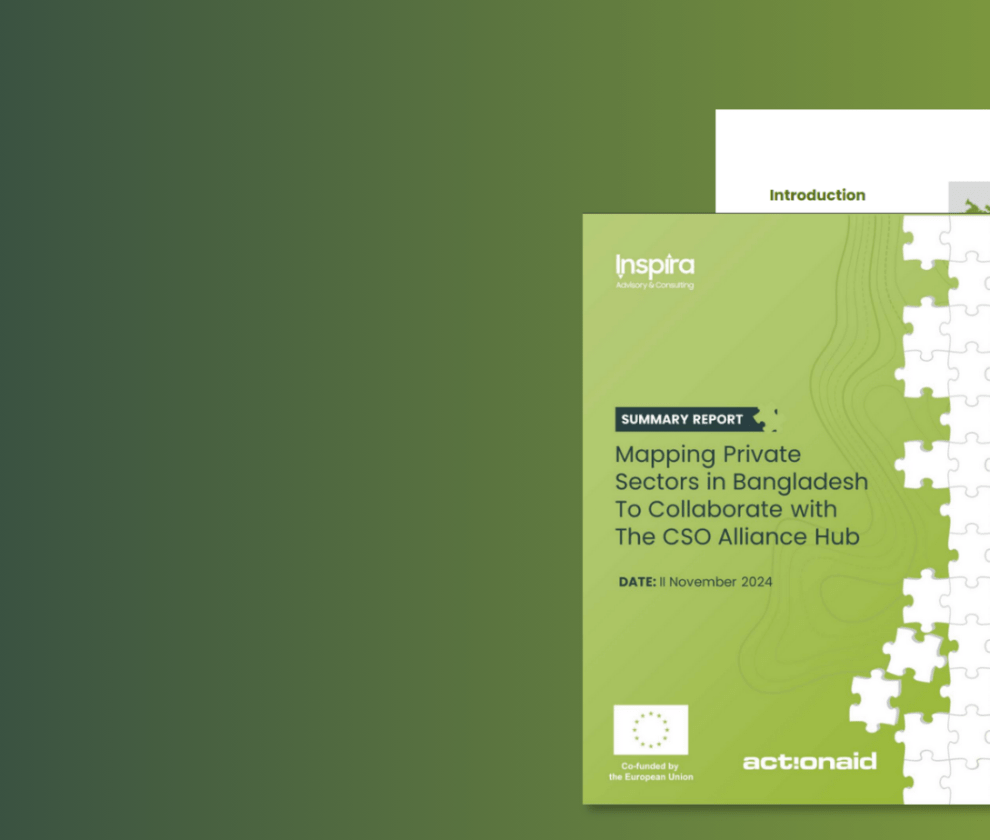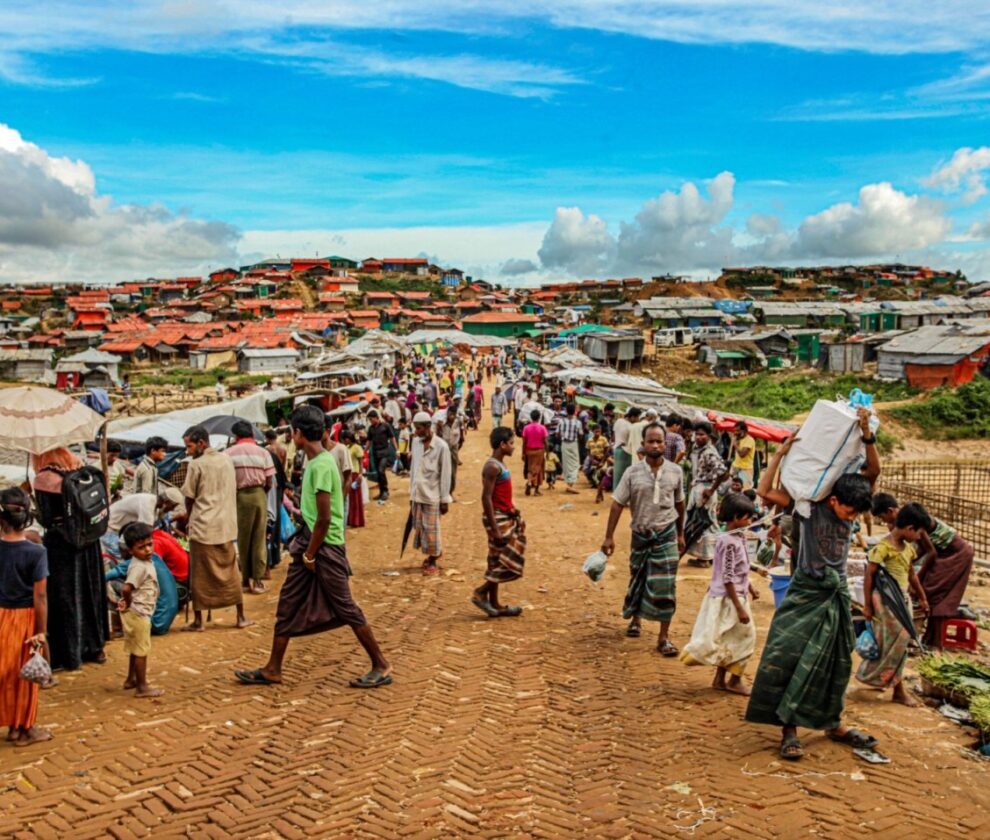Inspira won the Ai4Resilience challenge, organized by USAID’s Bureau for Humanitarian Assistance, with their idea of introducing a Rohingya youth-led innovation platform in Cox’s Bazar Rohingya camps.The platform aimed to harness the passion and skills of Rohingya youth to address community issues effectively.
In the initial phase of the immersive research, which commenced on May 28th, Inspira has provided extensive training and workshops to Rohingya youth, focusing on honing their problem-solving and prototype design skills. Additionally, an idea competition was organized to allow participants to showcase their unique ideas while gathering data on their Knowledge, Attitude, and Practice levels pertaining to specific themes.

Inspira conducting an Ideation discussion with Rohingya Youth In partnership with Nongor Organization
Furthermore, Inspira has ventured into selected camps to conduct immersive research, with the objective of identifying community-level problems highlighted by the Rohingya youth in their idea competition submissions. This meticulous research aimed to gather evidence regarding the unique challenges faced by the Rohingya community and their earnest desire to instigate positive change through community-level solutions.
The Rohingya youth expressed several pressing concerns and aspirations. They expressed a keen interest in acquiring computing skills, which would not only help them earn a livelihood but also enable them to educate others within the community. Moreover, they expressed the need for a more efficient distribution plan for essential resources like water, gas, and relief materials. Addressing the issue of child abduction within the camps and ensuring enhanced security and community policing facilities were also emphasized. Additionally, the Rohingya youth advocated for improved education, highlighting their desire for highly qualified teachers who could conduct classes effectively. Furthermore, they emphasized the importance of free movement between camps to foster better communication among the community.

Inspira Conducting an Ideation Discussion with the Rohingya youth in Partnership with Agrajjatra Organization
Inspira extended its research efforts to include extensive ideation discussions with the teachers of the Rohingya Community Schools. This process aimed to identify community-level problems and gain a deeper understanding of the community’s approach to overcoming these challenges. The ultimate goal was to empower the community to initiate innovative solutions that would reduce their dependence on relief funds and aid in their recovery.
Young women from the camps provided invaluable insights, shedding light on crucial community-level solutions. They emphasized the importance of teaching women how to repair household appliances and handle tasks such as fixing windows, doors, and latrines. Equipping women with the necessary skills to educate their children was also seen as a significant priority. These women expressed a desire for comprehensive follow-up sessions after learning quilting and sewing, ensuring they could effectively utilize their acquired skills. Moreover, they sought opportunities to engage in business ventures and reduce dependency on men, while still adhering to cultural norms and maintaining their purdah. Their aspiration for equal learning opportunities in livelihood skills was also evident.

Inspira Conducting an Ideation Discussion with the Rohingya female students from Agrajattra learning center in Partnership with Agrajjatra Organization.
The Rohingya Community School teachers shared enlightening information about the current situation within the camps and presented fresh perspectives on the challenges faced. These dedicated educators not only expressed concerns for themselves but also for the future of their students. They expressed a desire to establish a community library where individuals could access reading materials, with the aim of preserving and promoting knowledge within the camp. Additionally, they sought solutions to safely transport pregnant women from the camps to hospitals, as the current means of transportation, known as Khaittas, posed discomfort and risks.

Team GKI participated in the Ideation Discussion with the Rohingya School teachers from the Prantic Learning Center conducted by Inspira in Partnership with the Prantic Organization.
The teachers also envisioned creating teams of paramedics within each camp who could administer primary treatments during emergencies. Addressing the issue of early marriages among women and establishing home schooling facilities to encourage female participation in education and skill development were deemed essential. Moreover, they emphasized the importance of building community spaces equipped with board games to divert children from engaging in criminal activities.




